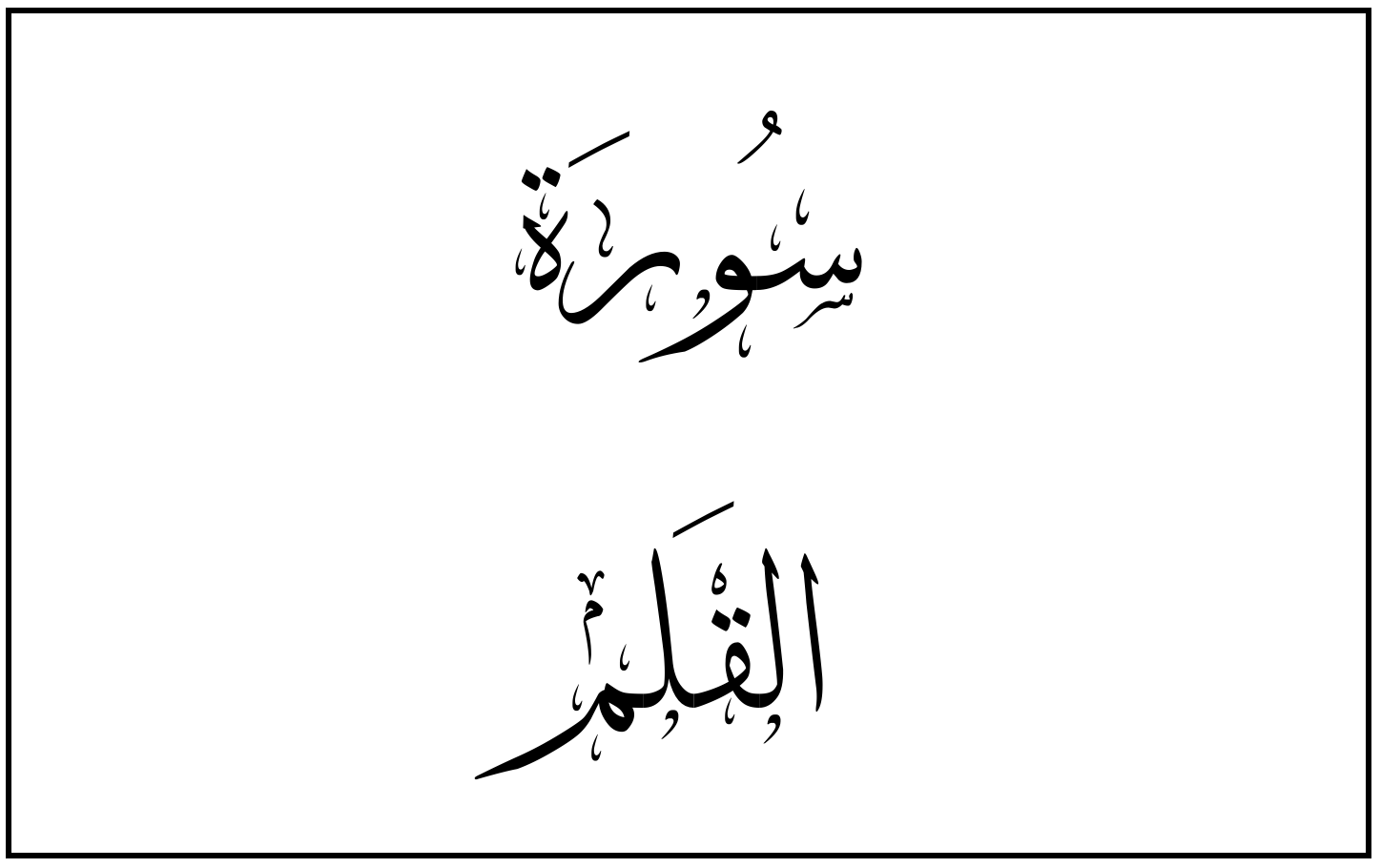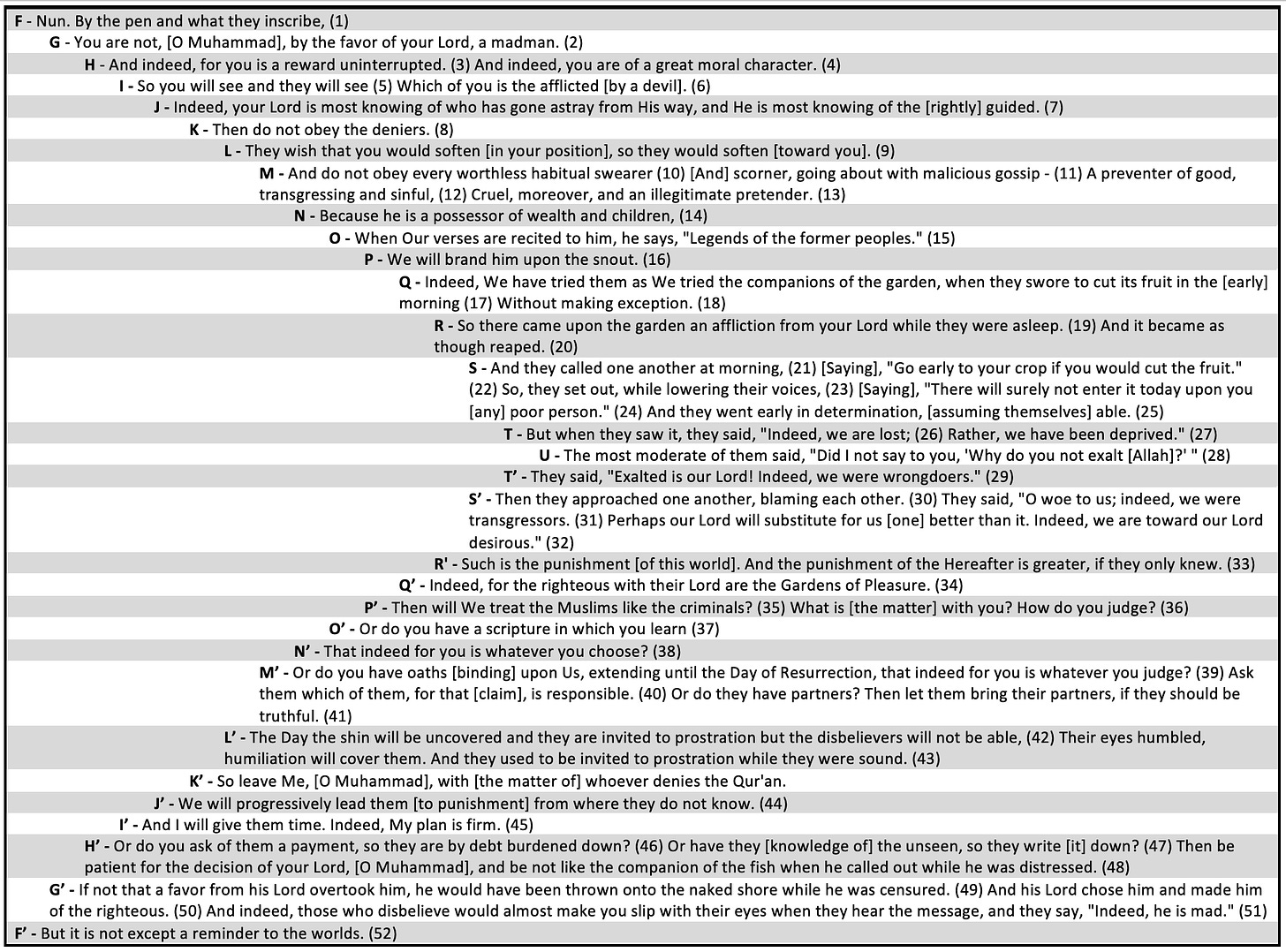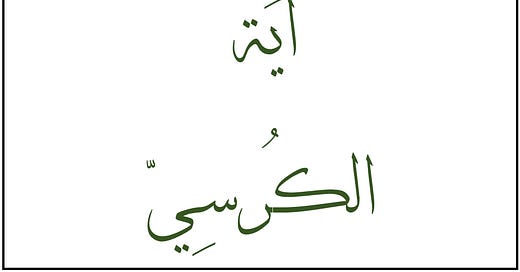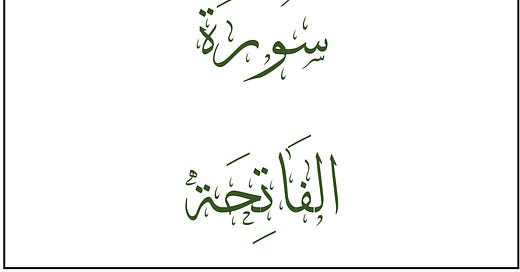

Discover more from Heavenly Order
Sūrat al-Qalam (Part 2)
Final part of observations on the organization, structure, and cohesion of Sūrat al-Qalam
Continuing from last week’s macro-look at Sūrat al-Qalam, when observed on a more granular level, it appears that the sūrah can be organized into a ring structure.1
CONNECTIONS
[F]/[F’] - The writing down of things with the pen is linked with mentioning and remembering.
[G/G’] - The Messenger ﷺ is told that he is not “bi-naʿmati rabbika bi-majnūn (by the favor of your Lord, insane).” Similarly, Prophet Jonah, in the linked passage, is saved because of “niʿmatun min rabbi-hi (a favor from his Lord).” And the disbelievers are quoted as calling the Messenger ﷺ “majnūn (insane).”
[H]/[H’] - Both speak of the character and ‘ajr (reward) of the Messenger ﷺ.
[I]/[I’] - Both ominously warn of an impending punishment.
[J]/[J’] - Allah’s knowledge is contrasted with people’s ignorance.
[K]/[K’] - “Al-mukadhdhibīn (the deniers)” versus “yukadhdhibu (to deny).”
[L]/[L’] - The pagans asked the Messenger ﷺ to compromise on his message of submitting to one God, which he never did. On the Day of Judgment, they will be commanded to bow down to Allah ﷻ, but will not be allowed to because they never did in this life.
[M]/[M’] - The arrogance and false swearing [to do something] of a particular disbeliever is expanded and generalized to the arrogance and false oaths of the disbelieving population.
[N]/[N’] - People think wealth and power gives them the authority to act as they choose.
[O]/[O’] - Allah’s āyāt and revelation is contrasted with the lack of revelation and scripture that the pagans act with.
[P]/[P’] - The punishment is linked with Allah ﷻ questioning the disbelievers on how they judge and met out treatment.
[Q/Q’] - The jannah (garden) of the sinful brothers is contrasted with the jannāt (gardens) of the God-conscious.
[R']/[R’] - The punishment.
[S]/[S’] - At first the brothers are conspiring together. Later, they are blaming each other before eventually repenting together as well.
[T]/[T’] - What happened versus why it happened.
[U] – Different from the macro-structuring above, the sūrah appears to center on the speech of the brother who was “‘Awsaṭa-hum (most moderate of them)”. He asks why they did not take his advice to praise and remember Allah ﷻ.
Interestingly, the Arabic word, ‘awsaṭa - translated as “moderate” above - also contains the meaning of “middle.”2 We have previously seen this in our study of Sūrat al-Baqarah (The Cow), where Allah ﷻ calls Muslims “ummatan wasaṭan (a middle/moderate nation)” in the middle āyah of that sūrah. And just as in Sūrat al-Baqarah, Sūrat al-Qalam also appears to mention the idea of being “moderate” in the center of its structure.
And Allah ﷻ knows best.
Taken with slight modification from:
Symmetry in Sura al-Qalam. The Gold Mine Initiative. (2018, June 5). Retrieved 2021, from https://tgminitiative.blogspot.com/2018/06/symmetry-in-sura-al-qalam.html
Which is why some scholars opined that the brother speaking here was the middle child.
Subscribe to Heavenly Order
Exploring the Divine Structure and Coherence of the Quran. Join us as we dismantle the myth of the "disjointed" and "random" organization of Islam's Revealed Text.












